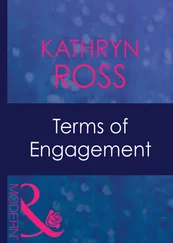I must be inside the water tower, he thought. Growing up, he had only seen it from the outside, its front door sealed with concrete and weeds sticking through the windows. Eddie and the other boys liked to climb to the crenellated top of the tower where they got a good view of the neighborhood, including into the community center where they could watch the girls getting undressed for their ballet lesson. Mary usually tried to hide herself behind a locker, but she wasn’t always successful. The boys stopped climbing after one of them fell and cracked his skull in two.
Now the stairwell window gave an unbroken view of a wide plain dotted with barbed gray-green shrubs, the earth’s curve at the horizon so faint it was almost invisible but undeniably there, a queenly entourage of clouds in procession above it. Otherwise all he could see were the barbed gray-green shrubs and, if he leaned out the window, a large haystack. The community center must be behind me, Eddie thought, but there wasn’t a window on that side of the room.
He started down the stairs, moving slowly and cautiously, trying not to make any noise. It wasn’t as if he’d been held prisoner exactly, but he had a clear sense that he would get in trouble if his therapist were to see what he was doing. The stairs went on forever, around and around the inside of the tower. The only actual room in the building, he realized, was the one where he’d been kept, near the roof.
Eventually he heard two women having what sounded like a heated discussion just beyond the tower door.
“She’s proud,” one woman said, “in case no one noticed.”
“She cured my shingles,” said the other woman.
“Shingles cure themselves,” said the first.
The lower Eddie climbed, the better his legs worked. He started to move faster, hoping to catch up with the women and perhaps ask them a few questions, but by the time he got to the bottom of the stairwell they were nowhere to be seen.
It was a fine afternoon and some village maidens were tending their sheep on a grassy knoll at the edge of town. Eddie passed the haystack he’d seen from above and realized it was burning. He passed a rearing horse, saddled but riderless, a group of schoolgirls clustered together, dressed in bright blue uniforms. “Watch out,” one of them said, “don’t let it touch you,” it meaning Eddie, though on reflection it almost seemed as if they didn’t even know he was there.
MARY LOVED HER DAUGHTER FROM THE MINUTE SHE laid eyes on her; she held her to her cheek and smiled. “The baby’s tired. She wants to go to sleep now,” Mary told Walter. She put the Yellow Bear in an old pink doll dress and carried it upstairs with her, then she got into bed with it and turned off the light.
In the morning when he brought Mary her breakfast tray of tea and toast he found her propped on her pillow, the bear at her breast. She was no longer smiling but had tears running down her cheeks. “I don’t know if I can do it,” Mary told him. The jingling sound the sorcerer had first heard when he set the bear down on the passenger seat was very loud now, ear-splitting. “She won’t stop,” Mary said. “She needs something from you, too. That’s how babies get made, in case you forgot.”
“She’s no baby, she’s a toy,” Walter said, but when he went to show Mary the rubber seam running across the top of the bear’s head, the baby sank its teeth into his thumb clear to the bone.
Later, when Mary had cried herself to sleep, the sorcerer snuck the bear from her breast and filled it with the substance he’d been keeping secret all this time in the jar in his basement workshop. “Pabulum,” he told Mary when she asked, because now there could be no question, the little girl was alive and thriving and cute as a button.
“What shall we call her?” Mary asked.
Because they couldn’t agree on a name, they decided to call her Blue-Eyes.
People often said that motherhood was the hardest job a person would ever have. Mary was in total agreement, an attitude she was sharing with Cindy XA as they walked side by side up the Avenue, pushing their baby carriages, the old-fashioned hooded kind that had made a comeback recently. The new crop of babies found it impossible to prosper if there was too much light or too many people staring them in the face. They had to be allowed to live their lives independent of their mothers in the shadow country underneath their carriage hoods that smelled, sweetly, of fabric softener sheets. “I don’t know about you,” Mary said to Cindy, “but I haven’t gotten a full night’s sleep ever since Blue-Eyes…”
She didn’t know how to finish the sentence — it wasn’t like her daughter had actually been born. The leaves of the ginkgo trees on either side of the entrance door to Mr. Costello’s haberdashery were like little yellow hands grabbing at her as she walked by — Mary knew they were exactly the kind of thing that would drive Blue-Eyes crazy. The seasons kept turning. There was nothing you could do about it.
“I’m getting one of those for Roy,” Cindy told Mary, pointing at a madras-plaid cummerbund cinched around the waist of a beige mannequin with smooth beige hair and beige eyes and a beige mouth. “We’re lucky our husbands have kept their boyish physique.”
Mary couldn’t picture Walter wearing a plaid cummerbund unless maybe he was naked and fooling around.
From the back of the store, Mr. Costello gestured toward the mannequin and waved Cindy in, but she shook her head, pointing at the baby carriage. “We’ve got to keep moving,” she mouthed. The need to keep moving was paramount with this newest crop of babies. Once the carriage had started moving, the baby would fly into a rage — and rage is not too strong a word for what overtook these babies — should the carriage come to a halt. Its head would expand like a balloon blown overfull of air. Sometimes its eyes would roll around and around in the sockets until all you could see were the backs of the eyeballs, white and crisscrossed with veins.
Mary loved Blue-Eyes so much that just thinking of her daughter made her feel like her insides were being vacuumed out. It was love and it was terror rolled up in one, the love feeding the terror, and the terror feeding itself with thoughts of all the terrible things that could happen to a helpless little girl, that had happened to little girls in the past and that were continuing to happen to little girls all the time. “Do you have trouble sleeping, too?” Mary asked Cindy.
“It’s different for me,” Cindy reminded Mary.
When a robot is hurt by human insensitivity — when the human fails to remember that robots never sleep, for example — then the robot might not bother to modulate its voice or make it sound like the product of a human voice box. Cindy’s voice still sounded human but it also sounded as if it had gotten trapped in a box made of metal on a planet in another galaxy and was beating against the sides of the box trying to get out.
“I’m sorry,” Mary said, and she was. Whatever the truth was about Cindy’s mechanism, Mary knew the robot was sensitive and could experience something exactly like pain. Her skin would shimmer and grow dull.
“It’s just that I’m having such a hard time lately,” Mary said. “I always used to think the end of the world was at hand. We all did, right? But then it didn’t end. It just kept on going, even after each of those endings foretold by some prophet. Now I’m constantly expecting it — every single moment I’m braced, like right now, thinking, this is going to be the last moment everything will still be the way it is with the sun above the trolley barn and Mr. Costello’s ginkgo trees and the cobblestones on the Avenue. I love Blue-Eyes so much it’s like I can’t help imagining the worst. Sometimes I even think it would be better if she didn’t exist.”
Читать дальше












